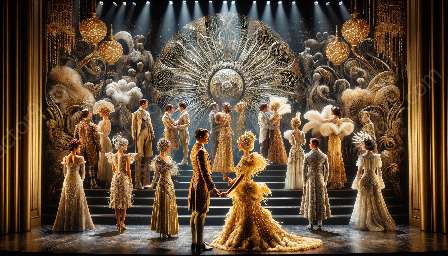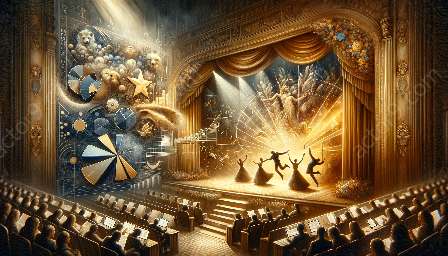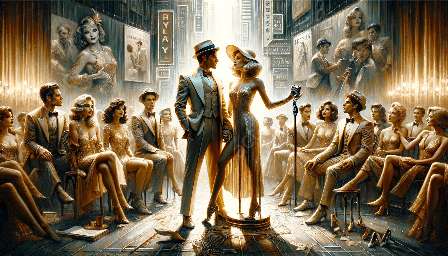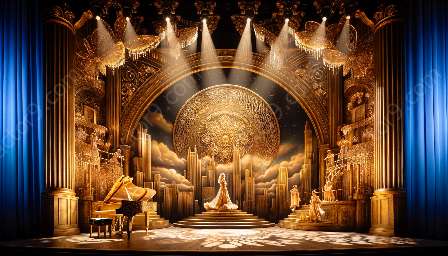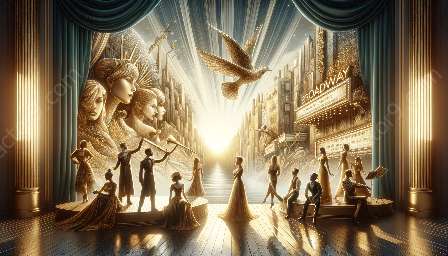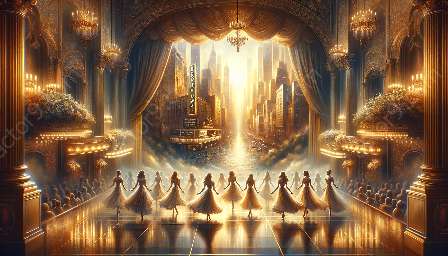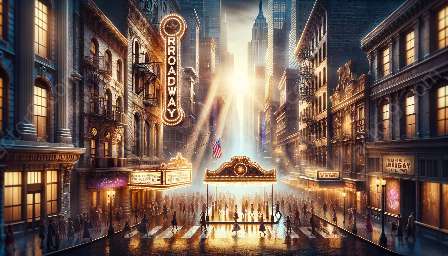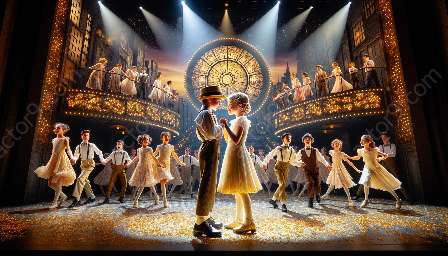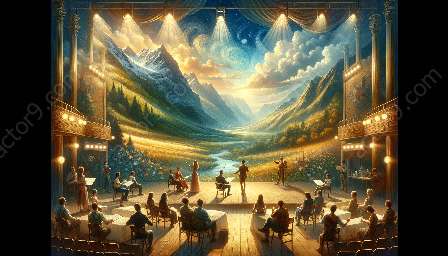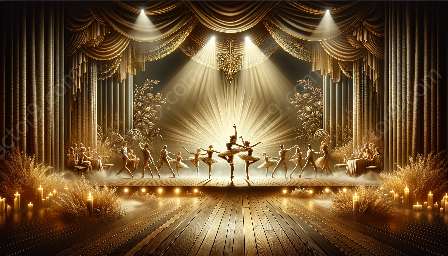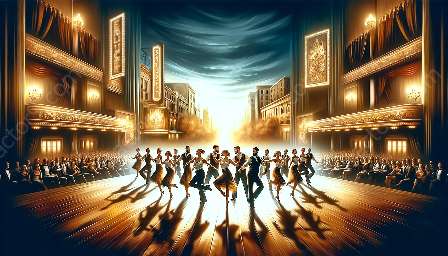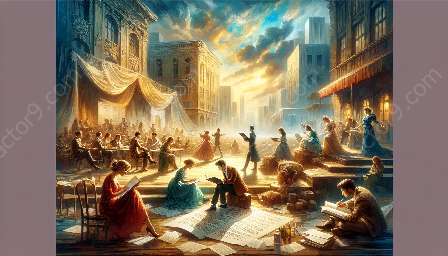Marketing and promotion play an essential role in the success of musical theater performances. In this comprehensive guide, we'll explore effective strategies for promoting musical theater productions, focusing specifically on how different genres are connected to Broadway and the broader musical theater scene. By understanding the nuances of each genre and leveraging effective marketing tactics, producers, directors, and marketers can take their musical theater productions to new heights.
Understanding Musical Theater Genres
Before delving into marketing and promotion strategies, it's crucial to have a solid understanding of the various musical theater genres. Musical theater encompasses a wide range of styles, from classic Broadway musicals to contemporary rock operas and everything in between. Some of the key genres in musical theater include:
- Classic Broadway Musicals: These timeless productions are characterized by their memorable tunes, intricate choreography, and elaborate set designs. Examples include 'The Phantom of the Opera,' 'Les Misérables,' and 'The Sound of Music.'
- Rock Musicals: This genre infuses rock music elements into the traditional musical theater format, often featuring edgier themes and modern storytelling. Popular examples include 'Rent,' 'Hedwig and the Angry Inch,' and 'Rock of Ages.'
- Operetta: With origins in 19th-century Europe, operetta combines light-hearted storytelling with operatic elements and upbeat melodies. Well-known operettas include 'The Merry Widow' and 'The Pirates of Penzance.'
- Jukebox Musicals: These productions feature a collection of popular songs by a particular artist or group, woven together to create a cohesive narrative. Examples include 'Mamma Mia!' (featuring ABBA songs) and 'Jersey Boys' (featuring music by The Four Seasons).
Each genre has its unique appeal and target audience, which should be considered when devising marketing and promotion strategies.
Connecting Genres to Broadway and Musical Theater
Broadway, known as the epicenter of musical theater, has a rich history of showcasing a diverse array of musicals. Understanding how different genres are linked to Broadway and the overall musical theater landscape can significantly impact marketing and promotion efforts. For example:
- Classic Broadway Musicals: These iconic productions have traditionally dominated the Broadway scene, appealing to a broad audience demographic. Their enduring popularity and recognition make them ideal candidates for large-scale marketing campaigns targeting both local and tourist audiences.
- Rock Musicals: While initially considered alternative, rock musicals have found a stable home on Broadway, attracting younger and rock music enthusiasts. Marketing efforts can highlight the edginess and contemporary relevance of these productions to appeal to their target demographic.
- Operetta: Though less common on Broadway in recent years, operettas offer a unique charm and nostalgic appeal. Strategic marketing could target audiences with an appreciation for classic theatrical experiences and traditional musical storytelling.
- Jukebox Musicals: These productions often leverage the popularity of the featured artists or bands to attract both devoted fans and casual audiences. Marketing strategies can tap into the nostalgia and familiarity associated with the music, enticing potential theatergoers to experience the live performances.
Effective Promotion Strategies for Musical Theater
Targeted Digital Marketing Campaigns
Given the influence of digital platforms, targeted online marketing campaigns have become indispensable for reaching potential theatergoers. The key is to tailor the messaging and visuals to resonate with fans of specific genres. For example, a rock musical may benefit from edgy and dynamic social media content, while classic Broadway musicals could be promoted with elegant and timeless visuals.
Collaborative Partnerships and Cross-Promotion
Forming partnerships with related businesses, such as music venues or themed restaurants, can create unique cross-promotional opportunities. For instance, a rock musical might collaborate with a local rock club for themed pre-show events, enhancing the overall theater experience and broadening the audience base.
Interactive Experiential Marketing
Creating immersive and interactive pre-show experiences can heighten anticipation and engagement. For instance, operettas could host themed tea parties or dance workshops, adding value for potential attendees and generating buzz within the community.
Community Engagement and Outreach
Engaging with local communities by offering educational workshops, talk-back sessions with the cast and crew, or hosting open rehearsals can foster a sense of inclusivity and connection. This grassroots approach can build a dedicated local fan base and generate positive word-of-mouth promotion.
Strategic Pricing and Ticketing
Adopting a dynamic pricing strategy, offering discounts for student or senior groups, and creating special packages for loyal patrons can make ticketing more accessible and enticing. Such targeted pricing can attract diverse audience segments, contributing to overall attendance and revenue.
Innovative Promotional Merchandise
Developing creative and genre-specific merchandise, such as limited edition vinyl records for rock musicals or vintage-inspired posters for classic Broadway shows, can serve as collectibles and conversation starters. Well-designed merchandise not only generates additional revenue but also extends the show's visibility beyond the theater walls.
Feedback-Driven Refinement
Continuous monitoring of audience feedback and engagement metrics can inform ongoing marketing adjustments and future promotional efforts. Collecting and analyzing data on audience preferences and response to various marketing tactics enables iterative refinement for optimal impact.
Conclusion
Marketing and promoting musical theater productions necessitate a deep understanding of the diverse genres and their connection to specific audiences. By aligning promotional strategies with the unique appeal of each genre and leveraging innovative tactics, producers and marketers can effectively engage with theatergoers and ensure a memorable experience. Embracing the authenticity and vibrancy of musical theater genres while adapting to contemporary marketing landscapes is key to captivating audiences and fostering a thriving theatrical community.







